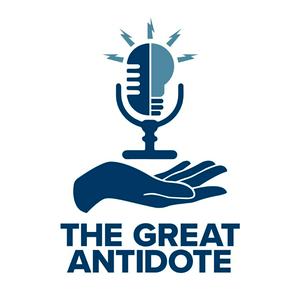Why Some States Succeed: Mobility, Markets, and the Freedom to Flourish with Justin Callais
Send us a textWhat makes some states thrive while others trap people in place? And what does it really mean to be free to move, grow, and flourish?In this episode, I talk with economist Justin Callais about the deep connections between personal fulfillment, economic mobility, and institutional quality. We begin with the personal: why real change starts internally, and how self-mastery and agency are prerequisites for meaningful, external progress. Then, we zoom out to ask: what kinds of systems make it easier for people to rise?We explore questions like:What is economic mobility—and what does it look like in practice?Why is Utah the top-performing states on the Archbridge Institute’s Social Mobility Index, while Louisiana lags behind?How do factors like governance quality, opportunity, and freedom of movement shape people's life outcomes?What role do individuals, institutions, and state policies play in promoting (or restricting) upward mobility?Justin Callais is the chief economist at the Archbridge Institute. He studies development economics, polycentric governance, and the institutional roots of freedom and flourishing.If you’ve ever wondered why where you live matters—or what it takes to build a society where people can truly move up in life—this conversation is for you.Want to explore more?James Heckman on Inequality and Economic Mobility, an EconTalk podcastRaj Chetty on Economic Mobility, an EconTalk podcastArnold Kling, The Kids Are...Different, at EconlibKerianne Lawson on Equal Economic Freedoms, a Great Antidote podcastJeremy Horpedahl on the Real Cost of Thriving Index, a Great Antidote podcastSupport the showNever miss another AdamSmithWorks update.Follow us on Facebook, Twitter, and Instagram.
